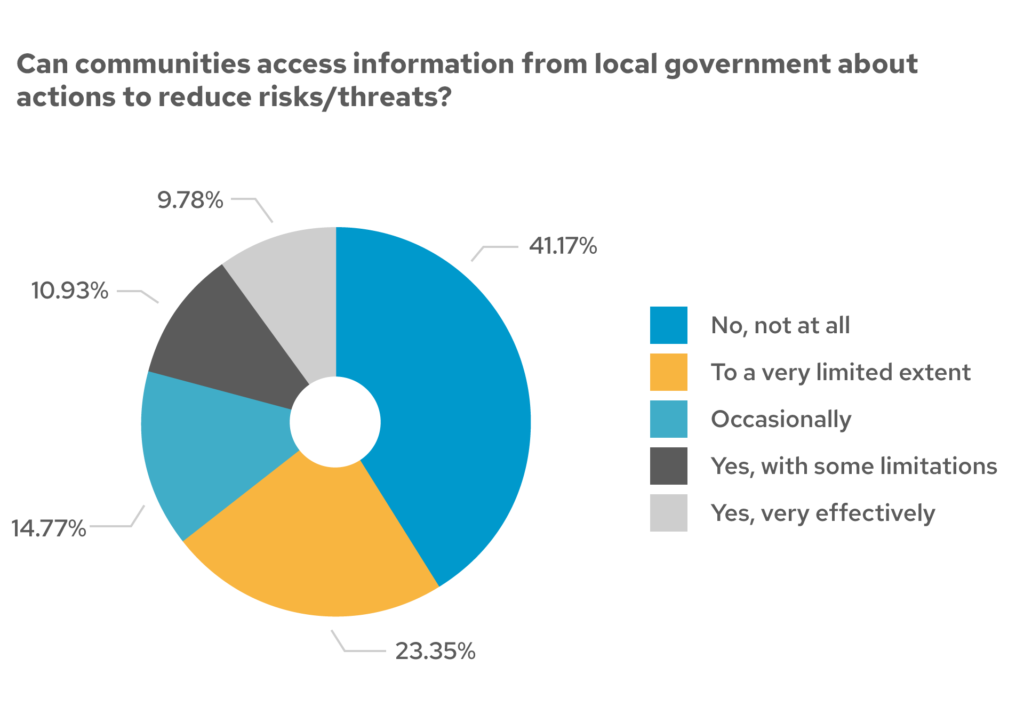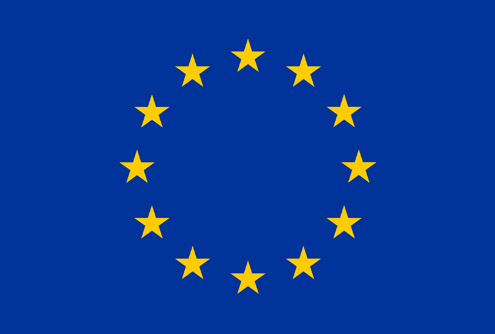VIEWS FROM THE FRONTLINE
Guatemala
We’re working with 15 communities in Guatemala to ensure that development is informed by the perspectives of people most at risk.
As part of our global Views from the Frontline programme we have surveyed community members, civil society organisations and government representatives across the country. Here we present our key findings, conclusions, activities and impact.
Random household surveys
Civil society surveys
Local government surveys
Key findings and conclusions at the national level
- Local level resilience building of communities most at risk needs to be prioritised in national risk reduction policies and plans
- Community engagement in assessing, planning, implementing and monitoring risk reduction plans and activities at the local level needs to improve
- Coherence between development, disaster risk reduction, climate change and poverty reduction strategies needs to be institutionalised

Surveys undertaken in Guatemala
Our Views from the Frontline surveys in Guatemala were undertaken in 2019.
Who was surveyed?
We surveyed 1,066 random households, 151 civil society organisations, 152 local government representatives, and undertook 76 community consultations.
Risk locations prioritised
We prioritised three risk areas:
- San Marcos
- Chiquimula
- Alta Verapaz
Communities surveyed
We surveyed people from 15 communities: Cabecera Municipal, Área Urbana, San José Santa Rita, Potrerillos, María Cecilia, Asentamiento Jesus Maria, Asentamiento Oscar Guevara, Barreal, La Mina, Matazano, San Marcos, Chió, Paapa, San Luis Popobaj and Saquib.
“Ecosystem and resilience are terms that are generally not known within a community.”
NAC representative, Guatemala
Our impact
Activities undertaken in response to community-level findings and conclusions
- Strengthening early warning systems, including installing signage around schools and providing emergency toolkits to communities to reduce risks from landslides and fires
- Providing training to community members on landslide risks, forest fires and the impacts of climate change
- Formation of an environment commission committee to raise awareness of solid waste management in communities
- Installation of garbage bins in communities
- Strengthening of community groups for effective emergency response
Impact of activities
- As a primary stakeholder, communities are now consulted in the assessment, planning, implementation and monitoring of risk reduction plans and activities to prevent disasters
- Community resilience increased due to the development of collaborative activities for disaster risk reduction, promoting a healthy and self-sustaining lifestyle
- Local level authorities have a better awareness of community resilience meaning community issues are now included when making national risk reduction policies and plans
Our project partners in Guatemala
Our Views from the Frontline programme is implemented by GNDR member organisations and partners in the country.
National coordinating organisation
- Food for the Hungry
Partner organisations
- Asociación Estudios de Cooperación de Occidente
- Asociación de Servicios y Desarrollo Socioeconómico de Chiquimula
- Food for Hungry Alta Verapaz
View all data from Guatemala
You can view all our Views from the Frontline survey data using our data dashboard. You can also learn more about our methodology for selecting at-risk areas and survey respondents.
Project funded by
European Union

Our Views from the Frontline project is funded by the European Union (EU). Content related to this project on our website was made possible by the support of the EU. All content is the sole responsibility of GNDR and does not necessarily reflect the views of the EU.
View their websitePhoto credit
Photo by Jeison Higuita on Unsplash.